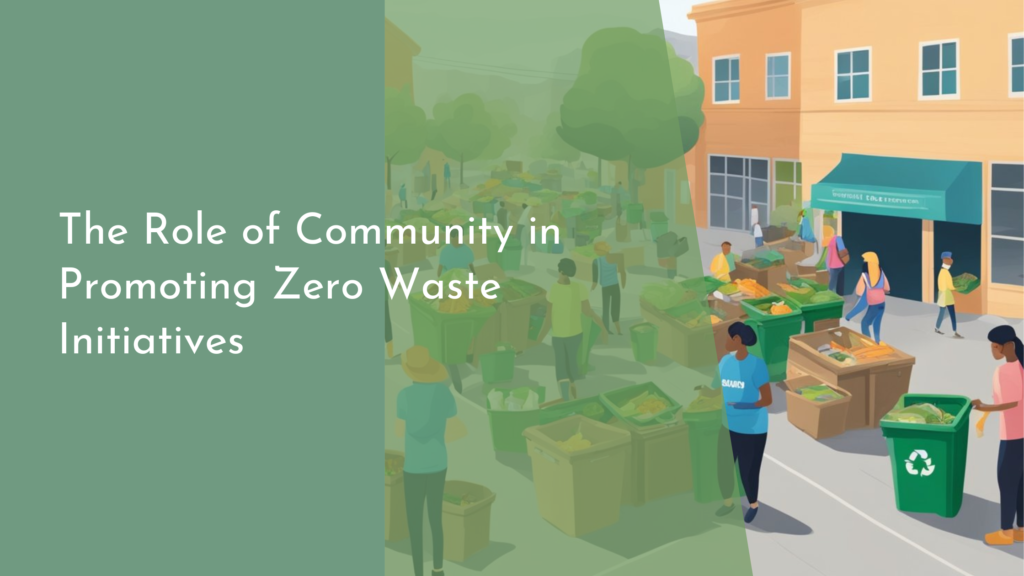Community Orchards: Bridging Urban Forestry and Food Production
In the hustle and bustle of urban life, green spaces can often feel scarce, overshadowed by concrete and steel. However, community orchards are sprouting up across cities, offering not just a breath of fresh air, but a delightful blend of urban forestry and food production. These vibrant green oases invite individuals and families to engage with nature, learn about sustainable practices, and cultivate their own food. As we explore the world of community orchards, we discover the joy they bring, their role in enhancing food security, their environmental impact, and how everyone can participate in this blossoming movement.
Discovering the Joy of Community Orchards in Our Cities
Community orchards are more than just a collection of fruit-bearing trees; they are a gathering place for residents to connect with one another and their environment. Each orchard becomes a hub of activity, where people of all ages can come together to learn, share, and enjoy the fruits of their labor. The joy of picking fresh apples, pears, or cherries right in the heart of the city is an experience that fosters a sense of community and belonging. These orchards often host educational workshops, allowing participants to gain knowledge about sustainable gardening practices, permaculture, and the importance of biodiversity.
In addition to the social benefits, community orchards also promote mental well-being. Spending time in green spaces has been shown to reduce stress, enhance mood, and increase overall happiness. By offering a serene escape from the urban grind, these orchards provide a space for reflection and rejuvenation. Whether it’s joining a communal pruning session or simply enjoying a picnic under the shade of an apple tree, community orchards create cherished memories and foster a love for nature that can last a lifetime.
How Urban Orchards Enhance Local Food Security Efforts
As cities continue to grow, food security becomes an increasingly pressing issue. Community orchards play a vital role in addressing this challenge by providing fresh, nutritious fruits to urban dwellers. These orchards not only contribute to a diversified local food system but also empower residents to take control of their food sources. By growing fruits within the community, individuals can reduce their reliance on long supply chains, which often lead to food waste and diminished nutritional quality.
Moreover, community orchards can serve as educational platforms that raise awareness about food systems and nutrition. Workshops and events often teach participants how to grow their own food, providing skills that can lead to more sustainable living practices. Children and adults alike learn about the journey from seed to fruit, which fosters a deeper appreciation for the food they consume. Ultimately, these orchards can contribute to a more resilient community where everyone has access to fresh produce, creating a healthier urban environment.
The Environmental Benefits of Urban Tree Planting
Urban orchards provide significant environmental benefits that extend beyond food production. Planting fruit trees contributes to urban forestry, which is a critical component of maintaining ecological balance in cities. Trees help improve air quality by filtering pollutants and providing oxygen, while also mitigating the urban heat island effect, thus cooling the environment. This creates more comfortable urban spaces for residents to enjoy, especially during hot summer months.
Additionally, community orchards promote biodiversity by creating habitats for various species, including pollinators like bees and butterflies. These vital insects thrive in green spaces, allowing for the natural pollination of fruits and vegetables. Moreover, urban orchards can help manage stormwater runoff, reducing the risk of flooding and improving water quality. By incorporating more greenery into urban landscapes, community orchards contribute to healthier ecosystems and a more sustainable future for our cities.
Join the Movement: Getting Involved in Your Local Orchard
Getting involved in a community orchard is an enjoyable and rewarding experience that anyone can participate in, regardless of gardening expertise. Many cities have local organizations dedicated to establishing and maintaining these orchards, offering volunteer opportunities for planting, maintenance, and harvesting. Joining these efforts not only allows individuals to contribute to their communities but also provides an opportunity to learn from experienced gardeners and connect with fellow residents who share a passion for sustainability and food production.
If you don’t have a community orchard nearby, consider starting one! Gather your neighbors and propose a suitable location, such as a vacant lot or park, and reach out to local horticulturalists or urban farming groups for guidance. With determination and collaboration, you can cultivate a thriving space that benefits both your community and the environment. Whether you’re picking fruits, organizing events, or simply enjoying your local orchard, every small action contributes to the growth of this wonderful movement.
Community orchards represent a beautiful convergence of urban forestry and food production, transforming cityscapes into lush, fruitful landscapes. They enrich communities by fostering social connections, enhancing food security, and promoting environmental sustainability. As we embrace this movement, let us remember that every tree planted and every fruit harvested is a step towards a greener, healthier urban future. So why not roll up your sleeves, connect with your neighbors, and get involved in your local orchard? Together, we can cultivate more than just fruit; we can grow a vibrant community united in the joy of gardening and the love of nature.

